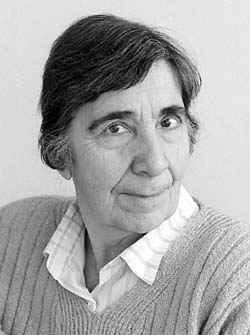About politics and Christmas

Defining the current status and historic role of religions in the EU countries in the process of building of civic societies under the contemporary conditions of multi-confessionalism is one of the unregulated legislative problems of the European Union. Today, the experience of the co-existence of different Christian confessions with representatives of other world religions, such as Islam, Judaism, and Buddhism, etc., in European countries is proof that existing problems are not going to disappear all by themselves. Solving them demands extraordinary efforts on the part of EU governments, societies, scholars, and clergymen.
The most important role is played by national public education systems, which have to be adjusted to the burgeoning variety of nations and religions in most of the Western European countries. Today over 30 million Muslims, the population of a major European country, live in the EU. The topics of religion, religious freedom, and tolerance also occupy an important place in the process of drafting the future EU Constitution, even though this topic does not seem to be as important as issues of security, finance, or peaceful co-existence with neighboring countries.
Kimmo Kiljunen, a Social-Democratic Finnish member of parliament, who actively participated in drafting the future EU Constitution, recently visited Kyiv. He kindly agreed to share with The Day’s readers some of his ideas about the EU Constitution chapters concerning religion and the Finns’ attitude to religious issues. Kiljunen told us that Finland is a typical Western European country, which is particularly reflected in its complete secularization. Religion there is considered a private matter of the individual, and society has nothing to do with it. Although 90 per cent of the population belongs to the Lutheran Church, considered the state religion, church-related activity is very low. The church is usually remembered when it is time to get married or hold a funeral.
The same situation is observed in most Western European countries. At the same time the drafters of the EU Constitution cannot agree on religious problems in the EU. The most debated one is the role of Christianity in building and shaping Europe. On the one hand, everybody understands that historically Christianity is the basis of European culture, world perception, art, education, etc. On the other, it is obvious that the other religions brought to Europe by its new citizens should be tolerated and respected. Proper conditions for practicing one’s faith freely must be created. The possibility of Muslim Turkey joining the EU, which is raising a lot of objections simply because the majority of Turks are Muslims, is being discussed in the context of this dilemma. Finland, however, according to Kiljunen, has never objected to Turkey joining the EU.
Coming back to defining the exclusive role of Christianity in the history of Europe in the EU Constitution, we notice, however strange it may seem, that such countries as Poland, Italy and Spain, i.e., those that attribute special importance to their Christian history, are among the “liberals”, who demonstrate their concern for religious tolerance. But the “conservatives” are also standing firm, and that’s why many people no longer believe in the possibility of consensus, although all of them support the idea of religious freedom for everyone.
In connection with this a new approach has been suggested — to reject the EU Constitution and replace it with a Declaration of Principles, with every EU country possessing its own legislation that would cover all local peculiarities. In Finland, for example, the basic issues of Lutheranism are studied in public schools and are included in the curriculum. “Should it be this way? Isn’t this atavism?” are the questions that are regularly asked. At the same time, Finland does not have a single religious school. The only exceptions are theology departments of universities, where future clergymen are trained.
Kiljunen adds: “Although the Finnish are not very religious, there is one religious holiday that unites us all, including non-believers. It’s Christmas. On that day, every family, whether it believes or not, goes to church. The most appealing custom is memorizing great choir concert programs. Rehearsals for these events bring people closer together. I am a pantheist, but at Christmas I always take my family to church, which is full of celebrating people and magnificent spiritual singing.”
Answering my question about whether it is possible to distinguish a believer from a non-believer in Finnish society according to their behavior, degree of trustworthiness, or visible kindness, Kiljunen said “No” after a pause. (I have never heard positive answers to this question.) He also said that the most religiously active people in Finland today are not Lutherans, whose community is the largest, but members of new charismatic churches. Unlike Ukrainians, Finns usually treat charismatic believers with great tolerance and think it’s better to perform one’s religious rites that way than to be an atheist.
P.S. The Finnish Orthodox Church (FOC) has been part of the Universal Patriarchate since 1923 as an autonomous archbishopric. It has about 60,000 members today. The FOC follows the Gregorian calendar, i.e., the New Style. During the Second World War the church lost all its monasteries and about 90 per cent of its property. In the post-war years, however, the state financed the construction of new churches, chapels, priests’ houses, and cemeteries. As the Orthodox priest Oleksii Sheberg has written, “Not without Divine Predestination do we, Orthodox, live in modern Finnish society today within a non-Orthodox majority. Practically every one of us has Lutheran relatives and friends. These kinds of ties of love and respect make ecumenical issues a matter of daily practice for us.”






